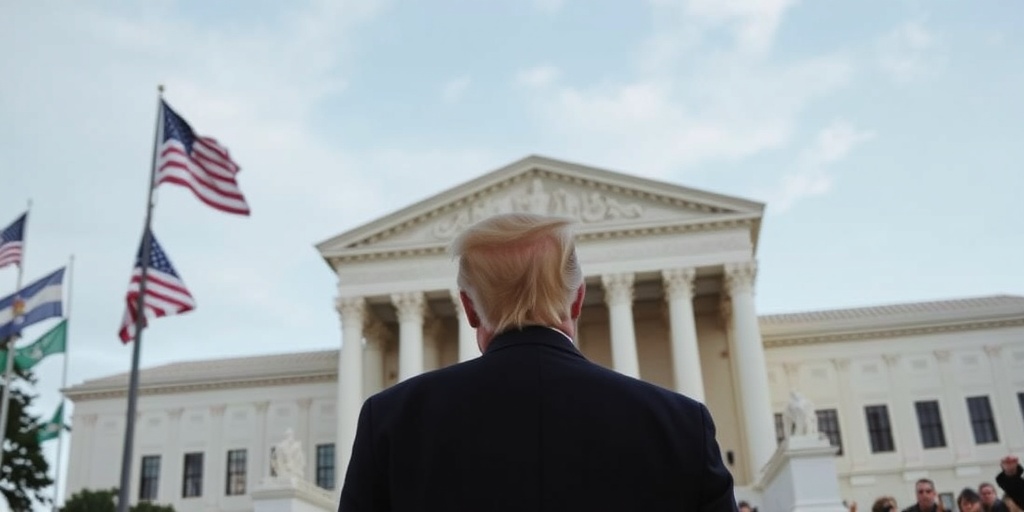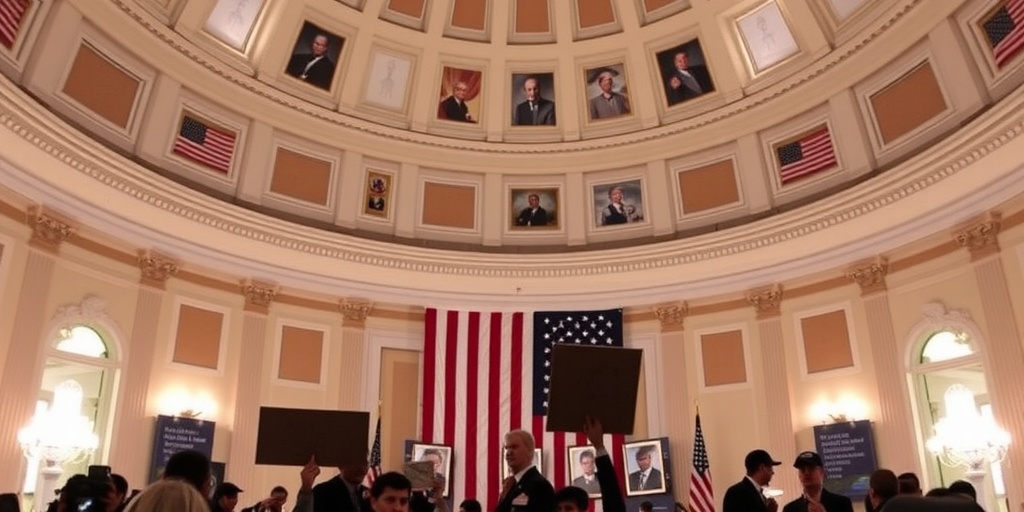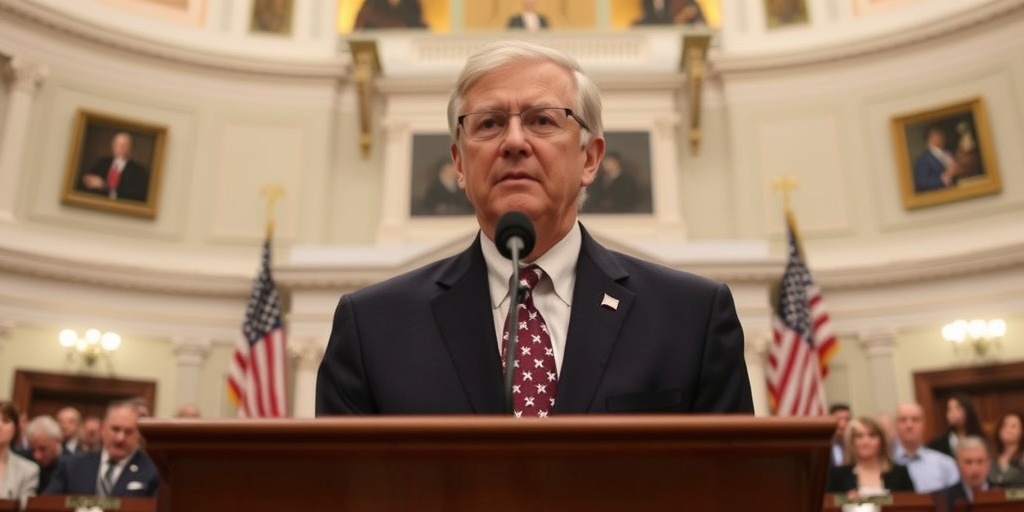Now Reading: Opposition Grows in House Against GOP Budget Plan
-
01
Opposition Grows in House Against GOP Budget Plan
Opposition Grows in House Against GOP Budget Plan

Budget Negotiations in Congress on the Brink of Crisis as Conservative Republicans Push Back
A crucial budget plan aimed at unlocking President Trump’s proposed tax cuts and increased spending is facing significant hurdles in the House of Representatives. On Tuesday, anti-spending conservatives converged to express their opposition, citing concerns that the plan would exacerbate the national debt.
House Republican leaders were fervently advocating for a swift vote, aiming to propel their party’s budget resolution forward as early as Wednesday. This call to action followed the Senate’s approval of the measure during an overnight session over the weekend. Securing the resolution would pave the way for the Republican Party to formulate legislation aligned with President Trump’s domestic agenda, enabling it to navigate through Congress amidst unified opposition from Democrats.
However, the situation became increasingly precarious as a faction of conservative hard-liners voiced their dissent. Many of these lawmakers indicated that even attempts by President Trump to sway them could fall short of overcoming their reservations. Representative Andy Harris of Maryland, who chairs the Freedom Caucus, was particularly vocal in his predictions of dissent, estimating that "at least a dozen" Republicans would remain opposed to the resolution.
Harris concluded that he would not attend a meeting with President Trump at the White House later that day, asserting, “Let the president spend time with people whose minds he might change. He’s just not going to change my mind.” This sentiment underscores a growing rift within the party as some Republicans are increasingly unwilling to compromise.
The conservative faction’s concerns center around the level of spending reductions proposed in the resolution. The budget calls for approximately $4 billion in spending cuts over a decade, a figure that critics argue falls drastically short of the $2 trillion in cuts the House previously approved. House Republican leaders maintain that this cutback is merely a starting point, providing them with necessary flexibility to comply with the Senate’s stringent procedural guidelines.
To expedite the tax and budget legislation through Congress, Republicans are utilizing a process known as reconciliation, which allows them to bypass a filibuster in the Senate. However, this method necessitates that both the House and Senate align on the same budget framework before they can proceed with the legislation.
House Republicans fear that agreeing to the Senate’s budget plan might lead to a compromise that requires accepting far lower spending cuts than they originally sought. Furthermore, there is palpable frustration among some members regarding the Senate’s position that extending President Trump’s tax cuts, originally enacted in 2017, would incur no additional costs as it simply preserves the existing tax structure. The Senate Republicans have adopted this stance to extend the tax cuts indefinitely, thereby granting themselves additional leeway in drafting legislation that would satisfy fiscally conservative lawmakers.
"This amendment just allows us to get off the sidelines, to get on the field and start this game,” asserted House Speaker Mike Johnson, emphasizing the urgency of the situation. He underscored that without the House’s approval of the Senate-passed budget resolution, Republicans would be forced to revert to the drawing board, requiring a fresh compromise and restarting the legislative process.
Representative Eric Burlison of Missouri echoed the misgivings about the proposed resolution, stating that it would not likely lead to any real deficit reduction but instead "accelerate our deficit.” This skepticism among several lawmakers highlights the balancing act that House leaders must navigate as they attempt to rally support amid stark opposition.
Johnson acknowledged the difficult position he finds himself in, as Speaker. He is tasked with securing the necessary votes for legislation that is deemed unfavorable by hard-liners within his party. The speaker argued the importance of adopting the resolution as a pivotal step in enabling lawmakers to draft legislation that would encapsulate the tax cuts and spending reductions tied to President Trump’s agenda.
With the clock ticking and pressures mounting from various factions within the party, the outcome of the proposed budget resolution remains uncertain. Republican leaders are keenly aware that the opportunity to advance their agenda hinges on their ability to unify and persuade reluctant members, or risk derailing their plans and further complicating their legislative goals. The stakes are high, and the upcoming days will likely be critical in determining whether the House can successfully navigate the turbulent waters of budget negotiations.
Stay Informed With the Latest & Most Important News
Previous Post
Next Post
-
 01New technology breakthrough has everyone talking right now
01New technology breakthrough has everyone talking right now -
 02Unbelievable life hack everyone needs to try today
02Unbelievable life hack everyone needs to try today -
 03Fascinating discovery found buried deep beneath the ocean
03Fascinating discovery found buried deep beneath the ocean -
 04Man invents genius device that solves everyday problems
04Man invents genius device that solves everyday problems -
 05Shocking discovery that changes what we know forever
05Shocking discovery that changes what we know forever -
 06Internet goes wild over celebrity’s unexpected fashion choice
06Internet goes wild over celebrity’s unexpected fashion choice -
 07Rare animal sighting stuns scientists and wildlife lovers
07Rare animal sighting stuns scientists and wildlife lovers





















